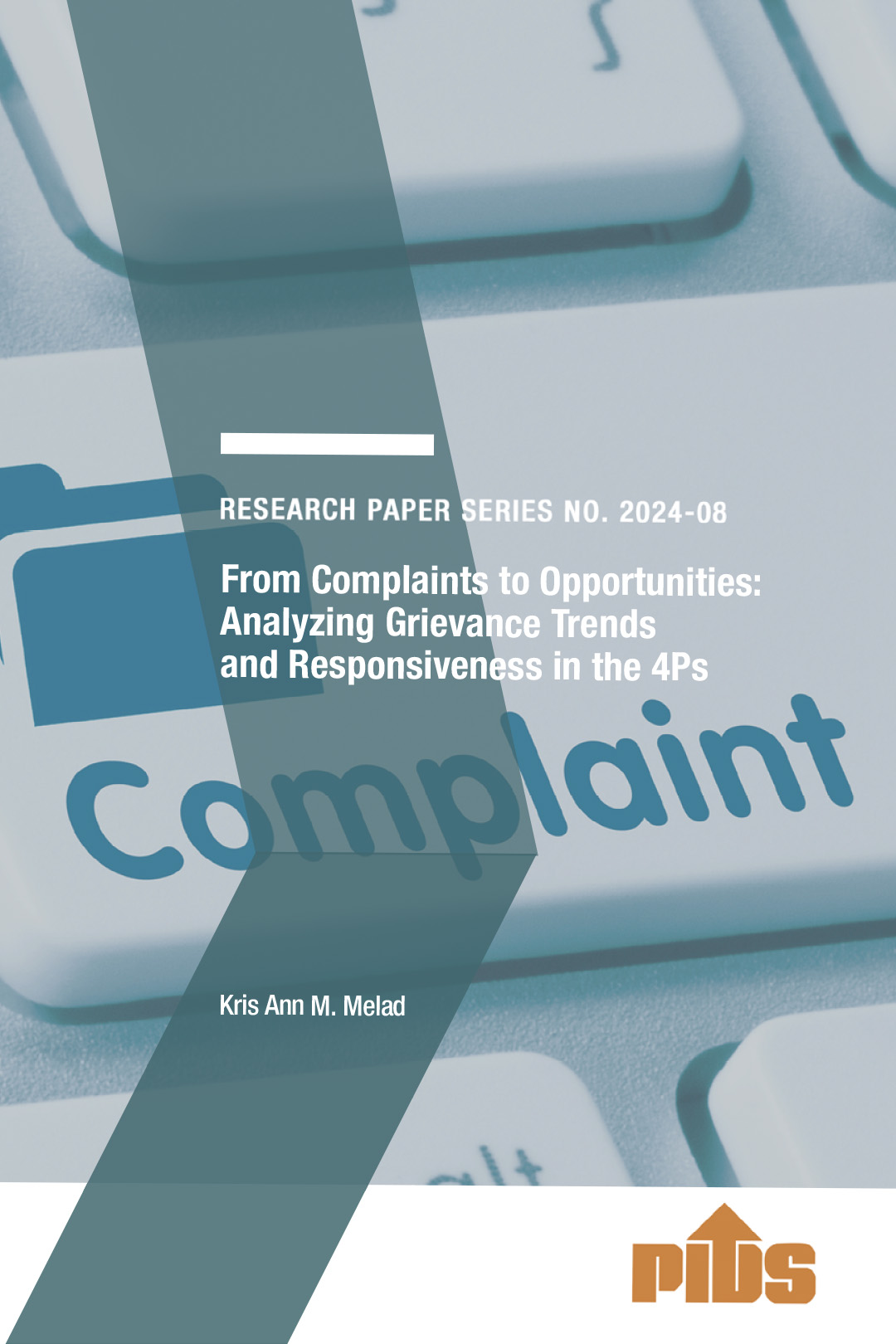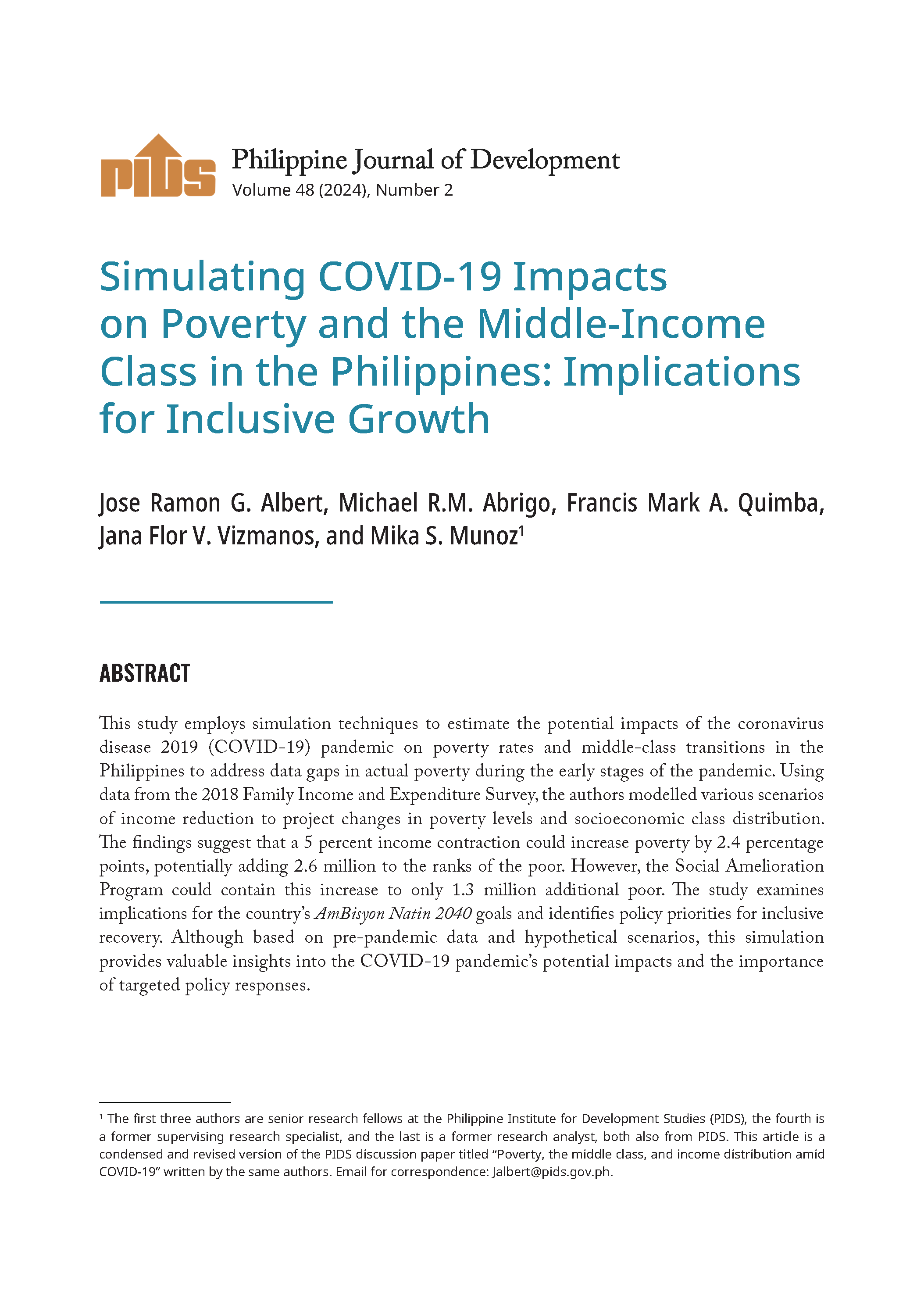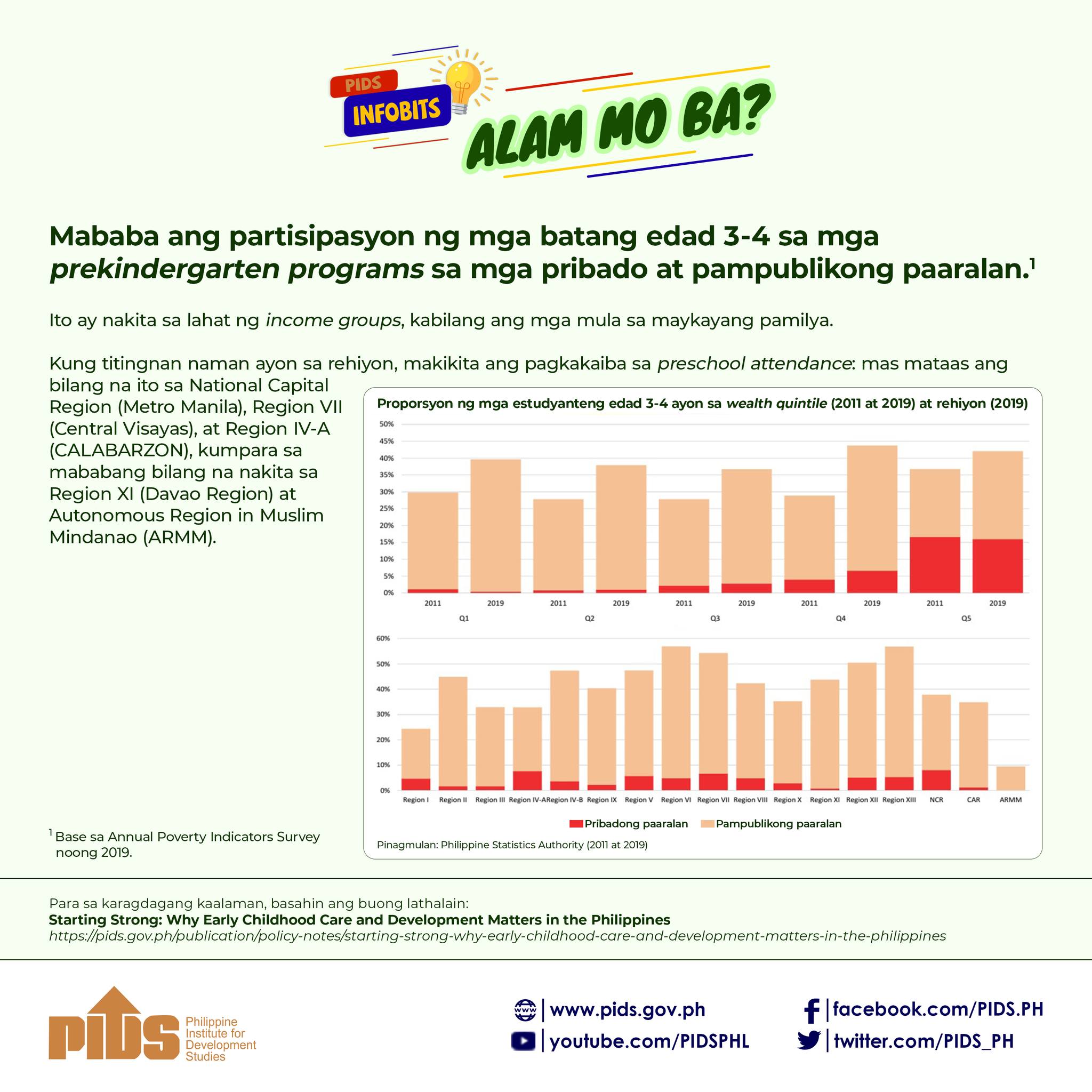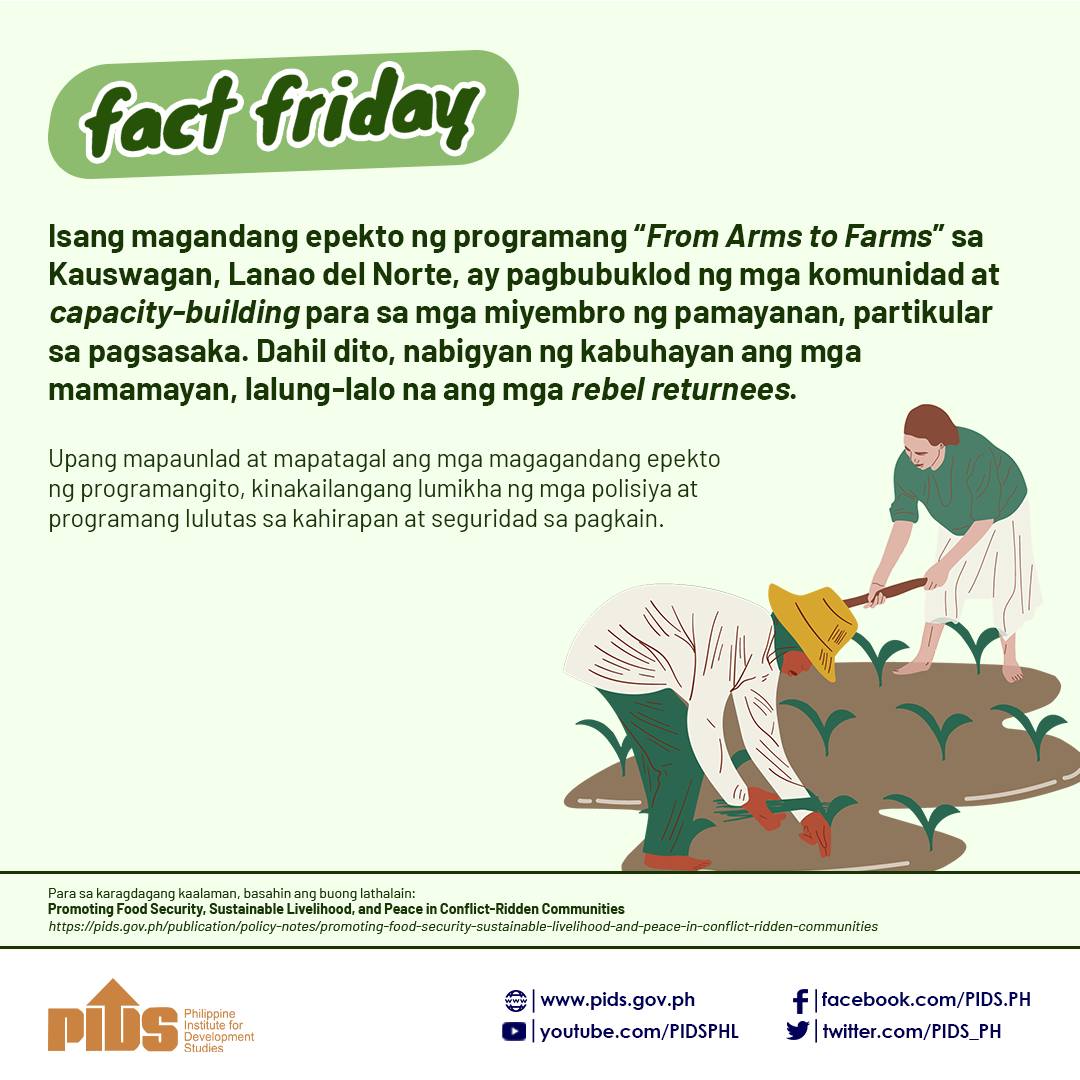Extending the Pantawid Pamilyang Pilipino Program or 4Ps beyond five years for current beneficiaries is needed to allow the poor to outgrow the governments conditional cash transfer (CCT) program. This was emphasized by experts from the state think tank Philippine Institute for Development Studies (PIDS) in a forum last July 31.
The resource speaker, PIDS Visiting Research Fellow Vicente Paqueo, noted that the Pantawid extension will be economically and socially beneficial and will also give the government more time to work out a transition strategy and pursue policy reforms that will lead to a massive expansion of job opportunities for beneficiaries.
President Benigno S. Aquino III announced the extension of the 4Ps in his fourth State of the Nation Address last July 22, citing research findings and policy recommendations of PIDS.
Paqueo presented five arguments supporting the CCT extension based on his study with co-authors PIDS Senior Research Fellow Aniceto Orbeta, AusAid Consultant Tarcisio Castaneda and ADB Senior Education Specialist Chris Spohr: (1) poverty and income inequality remain high and stable; (2) the Pantawid program has been a credible, effective, and valuable instrument for poverty alleviation in the short run; (3) an extension will be an opportunity to produce greater positive impact on the welfare of the poor; (4) an extension will provide social stability and support to allow the government to undertake reforms; and (5) a significant improvement in high school enrollment and completion is expected with moderate subsidies for cash grants.
The concerns about creating a culture of dependency and irresponsible use of CCT cash assistance have been shown to be overblown and unfounded. In fact, household spending on health and education increased remarkably in both absolute amount and as a share of total consumption spending, Paqueo told stakeholders, citing their analysis of data from the Annual Poverty Indicators Surveys.
By extending the 4Ps to enable beneficiaries to finish high school, they would be in a substantially better position to get jobs and become economically productive in the future, he pointed out. Economic yields from high school graduation are significantly higher than from elementary graduation. At 2012 prices, 2008 earnings of high school graduates averaged P23,112, clearly higher than those of elementary graduates` P10,339. Moreover, poverty incidence in households headed by high school graduates, at 15.95 percent, is just about half that of households headed by elementary graduates.
Based on simulations by Paqueos research team, an additional PhP5-billion in the budget to cover eligible 12- to 18-year-olds can support a rise in high school completion rate from 44.5 percent to 53 percent. An outcome of 75 percent or better will require an additional PhP10 billion in the budget.
Discussants in the forum were PIDS Senior Research Fellow Celia Reyes, Social Weather Stations President MaharMangahas, AIM Policy Center Executive Director Ronald Mendoza, and Ibon Foundation Executive Director Sonny Africa. Social Welfare and Development Secretary Corazon "Dinky" Soliman was present to share her thoughts and to solicit inputs from the participants.
Sec. Soliman disclosed that the government is looking at helping an additional 2 million children under the Pantawid extension, bringing the total number of beneficiary children to 10 million. Soliman also revealed that they are proposing to give PhP500 assistance to high school beneficiaries. The increase from PhP300 is in relation to Reyes study that high school students have more expenses than elementary students because public high schools are located sdfsdvsdvsdvsd
The resource speaker, PIDS Visiting Research Fellow Vicente Paqueo, noted that the Pantawid extension will be economically and socially beneficial and will also give the government more time to work out a transition strategy and pursue policy reforms that will lead to a massive expansion of job opportunities for beneficiaries.
President Benigno S. Aquino III announced the extension of the 4Ps in his fourth State of the Nation Address last July 22, citing research findings and policy recommendations of PIDS.
Paqueo presented five arguments supporting the CCT extension based on his study with co-authors PIDS Senior Research Fellow Aniceto Orbeta, AusAid Consultant Tarcisio Castaneda and ADB Senior Education Specialist Chris Spohr: (1) poverty and income inequality remain high and stable; (2) the Pantawid program has been a credible, effective, and valuable instrument for poverty alleviation in the short run; (3) an extension will be an opportunity to produce greater positive impact on the welfare of the poor; (4) an extension will provide social stability and support to allow the government to undertake reforms; and (5) a significant improvement in high school enrollment and completion is expected with moderate subsidies for cash grants.
The concerns about creating a culture of dependency and irresponsible use of CCT cash assistance have been shown to be overblown and unfounded. In fact, household spending on health and education increased remarkably in both absolute amount and as a share of total consumption spending, Paqueo told stakeholders, citing their analysis of data from the Annual Poverty Indicators Surveys.
By extending the 4Ps to enable beneficiaries to finish high school, they would be in a substantially better position to get jobs and become economically productive in the future, he pointed out. Economic yields from high school graduation are significantly higher than from elementary graduation. At 2012 prices, 2008 earnings of high school graduates averaged P23,112, clearly higher than those of elementary graduates` P10,339. Moreover, poverty incidence in households headed by high school graduates, at 15.95 percent, is just about half that of households headed by elementary graduates.
Based on simulations by Paqueos research team, an additional PhP5-billion in the budget to cover eligible 12- to 18-year-olds can support a rise in high school completion rate from 44.5 percent to 53 percent. An outcome of 75 percent or better will require an additional PhP10 billion in the budget.
Discussants in the forum were PIDS Senior Research Fellow Celia Reyes, Social Weather Stations President MaharMangahas, AIM Policy Center Executive Director Ronald Mendoza, and Ibon Foundation Executive Director Sonny Africa. Social Welfare and Development Secretary Corazon "Dinky" Soliman was present to share her thoughts and to solicit inputs from the participants.
Sec. Soliman disclosed that the government is looking at helping an additional 2 million children under the Pantawid extension, bringing the total number of beneficiary children to 10 million. Soliman also revealed that they are proposing to give PhP500 assistance to high school beneficiaries. The increase from PhP300 is in relation to Reyes study that high school students have more expenses than elementary students because public high schools are located sdfsdvsdvsdvsd












